Drummer Yacub Addy dies
Ghanaian drummer Yacub Addy, a master of African music who founded Odadaa!, worked with jazz trumpeter Wynton Marsalis and became a National Heritage Fellow in 2010, died of a heart attack on Dec. 18 at the age of 83. He lived in Latham.
His death was announced by Amina Addy, his manager, producer and wife of 37 years. “I could write a book on this topic,” she said, describing his life and contributions in an email. “Yacub was a pioneer.”
Marsalis, reached by phone Tuesday afternoon, described Addy as a natural teacher, a profound and natural communicator and a keen observer of meaning in rhythm and life. “I don’t know if he learned anything from me, but I learned a lot from him,” he said.
“He was just a very wise man. His music healed. His music was always about uplifting the human condition and the human spirit,” Marsalis said.
Addy was born in Accra, Ghana, in 1931, during an era when the indigenous culture “was looked down upon, not only by British colonials, but by his own people who were trying to modernize,” Amina Addy said.
In 1956, he mounted the country’s first major concert highlighting its own traditional music and dance, and in 1968 he founded a small family ensemble dedicated to Ghanaian music. That became, in the early 1970s, the first such professional troupe to tour the western world. His travels took him to the United States, where he founded Odadaa! in 1982, bringing authentic African performances to American audiences at a time when world music was just getting a name and a foothold.
Robert Browning, retired founder-director of the World Music Institute in New York City, recalled both Addy’s expertise and his new works and collaborations with musically diverse artists. In an email, he described meeting Addy in 1983 in Washington, D.C., where he had first lived stateside before settling in Troy in the 1990s. “He was charming, unpretentious and accessible,” he said, “with a handshake that, even in his 80s, matched the power of his drumming.”
Among Addy’s many cross-genre collaborators was Marsalis, who joined with Odadaa! on projects including “Congo Square,” which premiered in New Orleans in April 2006 — nine months after Hurricane Katrina — and yielded American tours, international appearances and recordings.
Addy exuded “experience, knowledge, integrity — and a willingness to communicate what he knew,” Marsalis said. “He was really a healer — but he worked as a musician.”
As a teacher, Amina Addy said, her husband emphasized proper technique in hand-drumming, producing “a series of distinct, clean tones, both strong and sensitive” that incorporated complex rhythms.
“Yacub also taught his students things unexpected, such as respect for women and mothers … respect for oneself, for parents, for women, for teachers, for elders. And for those who were ready for his knowledge, he liberated their spirits in the way a hip grandfather would do for his own grandchildren,” she said.
Addy taught at schools, colleges and programs throughout the country. In the Capital Region, he was a presence at RPI and Skidmore College, where he brought rhythm-centered African traditions to students otherwise steeped in principles of Western melody and harmony.
“It’s one thing for a campus to talk about non-western cultures … but you bring someone like Yacub to campus, and you get it first hand — and you get it unfiltered,” said Gordon Thompson, head of the Skidmore music department. “You know, he brought a certain attitude to music that attracted a lot of students. You could find students out drumming. They’d have their drums, and they’d be working on their own out on the college green.”
Five years ago, Addy was tapped by the National Endowment for the Arts as a Heritage Fellow, the nation’s highest tribute for traditional and folk arts. An NEA statement released “with great sadness” in the wake of the drummer’s death quoted a 2010 interview in which Addy addressed the role of his own roots in connecting with other cultures. “We Ga are unique among Ghanaians,” he said at the time. “We love human beings, no matter where you come from. We are very social. We welcome strangers. We are also independent, proud, and we don’t take nonsense.”
Known for his humility, warmth and generosity with other musicians, Yacub Addy also “loved the truth and because he did, he didn’t mince words,” Amina Addy noted. Added Marsalis: “Yacub was for real.”
Besides his wife and nine children, who live in Colonie, Oregon, Philadelphia, New Mexico and Ghana, Addy’s large surviving family includes seven siblings in Africa and two in Virginia. A younger brother who died in 2012, Obo, was also an internationally renowned drummer, as is Mustapha Tettey Addy, one of his siblings in Ghana.
Addy suffered numerous medical crises over the years, twice bouncing back to continue with concert tours, but his health had been doing well of late, Amina Addy said.
He died at Albany Medical Center after he suffered cardiopulmonary arrest while driving behind an ambulance rushing his wife to the ER for an anaphylactic reaction.
“It was hard to believe, but it was true. Just across the other side of the ER the love of my life lay lifeless,” she wrote in her email. “I was released from the hospital two days later, and Yacub’s body was buried the following day in the simple, dignified, and highly spiritual Islamic tradition.”
A public celebration of his life is being planned.
She and her husband were “midstream” in several projects, which she aims to finish eventually. “And if God gives me life, I will try to create other projects that are in keeping with his vision.” Contributions may be made to these projects once they’re announced on Addy’s web site (www.yacubaddy.com) and Facebook page (www.facebook.com/YacubAddy), she said.
- AmyBiancolli
Source: Timesunion.com

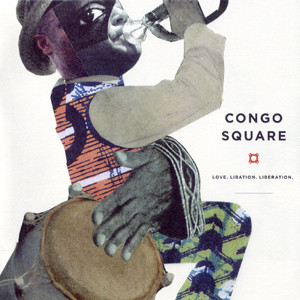
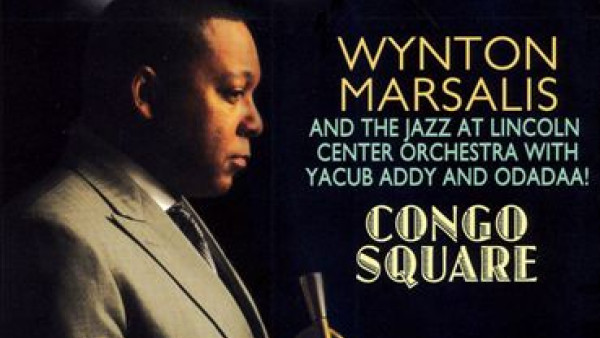
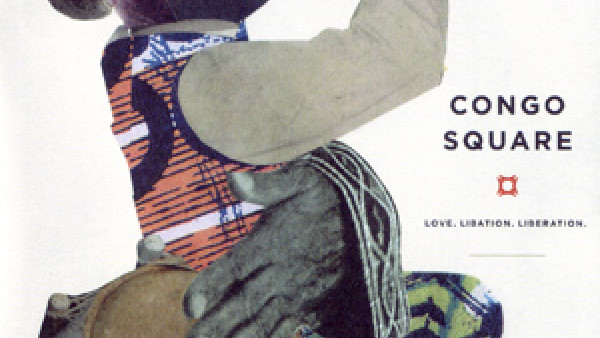
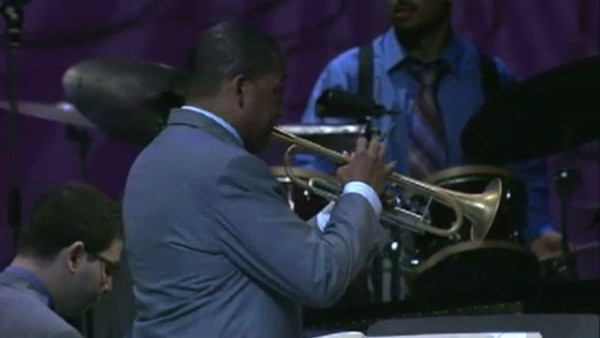
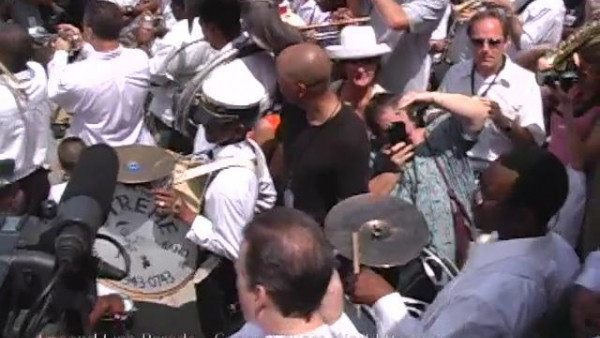
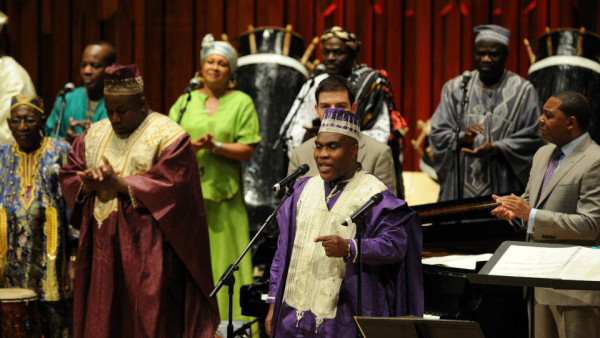
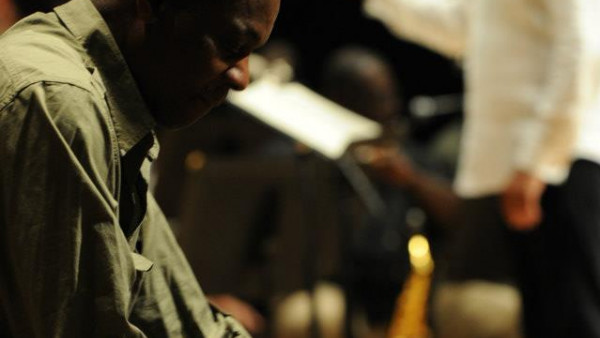
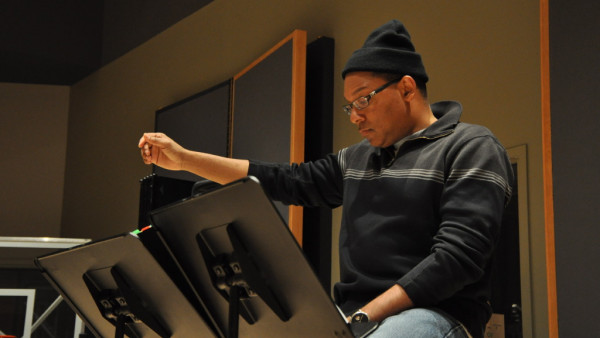

Comments
I’m so sorry to hear about Yacub Addy’s passing. I loved his drumming style!! His style was effortless – I loved it!!
Valerie on Jan 27th, 2015 at 12:55pm